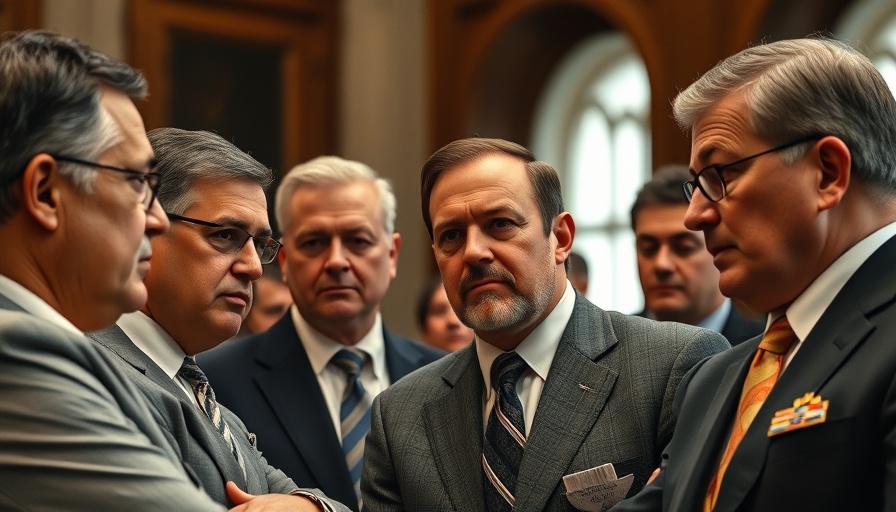
The EU's Offer: A Desperate Bid to Avert a Trade War
The European Union (EU) is currently in a precarious position as it grapples with rising tariffs imposed by the United States. In a bid to mitigate escalating trade tensions, EU trade ministers have formulated a proposal offering zero tariffs on cars and industrial goods in exchange for similar concessions from the US. This move exemplifies the EU's urgent desire to de-escalate the situation and engage in constructive negotiations, especially since a staggering €380 billion worth of EU exports to the US faces tariffs that can soar as high as 25%.
In EU offers zero tariff deal to US but prepares for trade war, the discussion dives into the critical dilemma facing Europe amid rising protectionist measures, prompting a deeper analysis of the potential economic fallout.
The Stakes: Economic Implications of Tariffs
As trade tensions rise, the economic implications for the EU become increasingly concerning. With approximately 70% of EU exports to the US now subjected to heavy tariffs, the potential for a financial crisis looms large. Such measures risk plunging both the EU and the US into a recession, a scenario that would have far-reaching consequences not just for these regions but globally. Stock markets across Europe experienced a significant downturn, reflecting the pervasive uncertainty and fear surrounding these developments.
Divided Responses: Unity and Disunity Among EU Members
Within the EU, responses to this predicament reveal a complex state of unity and disunity among member states. While countries like France advocate for a more aggressive retaliation against US tariffs, others, including Ireland and Italy, are cautious and emphasize the importance of consensus and negotiation. This internal conflict underscores the challenges the EU faces in presenting a united front against external pressures. Moreover, the German trade minister's assessment of Trump's tariff policies as fundamentally flawed highlights the deep disparities in perspectives among EU leaders.
What Lies Ahead: Predictions for Trade Dynamics
Looking towards the future, the question remains whether the EU's current tactics will effectively lead to reduced tensions and the restoration of fair trade practices. The outcome hinges on both parties recognizing the mutual benefits of open trade and the detrimental impacts of protectionism. As the landscape evolves, the EU's ability to navigate these choppy waters will significantly shape its economic future and global standing.
As trade dialogues unfold and the world watches closely, it is incumbent upon leaders and policymakers to prioritize cooperation over conflict. In light of the current situation, engaging in open discussions and exploring common ground may very well be the key to safeguarding the future of transatlantic trade.
 Add Row
Add Row  Add
Add 




Write A Comment